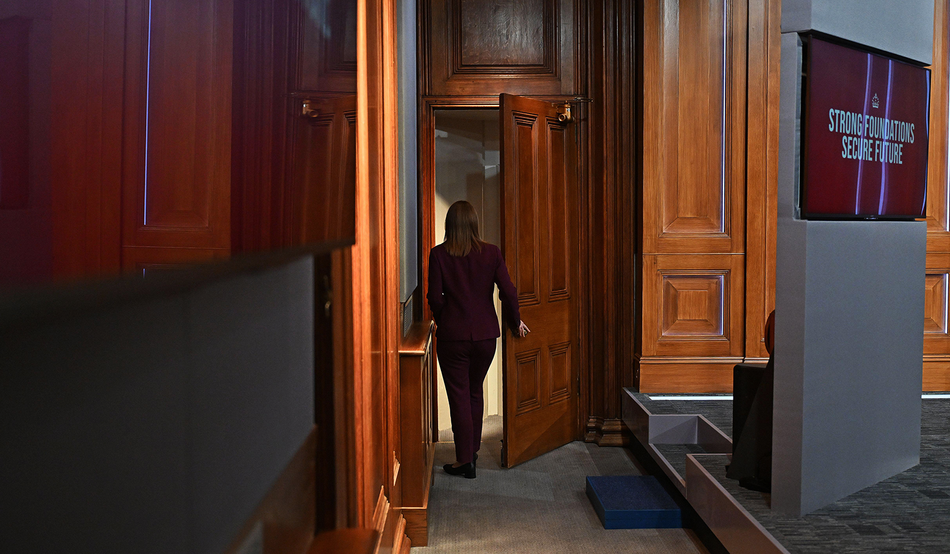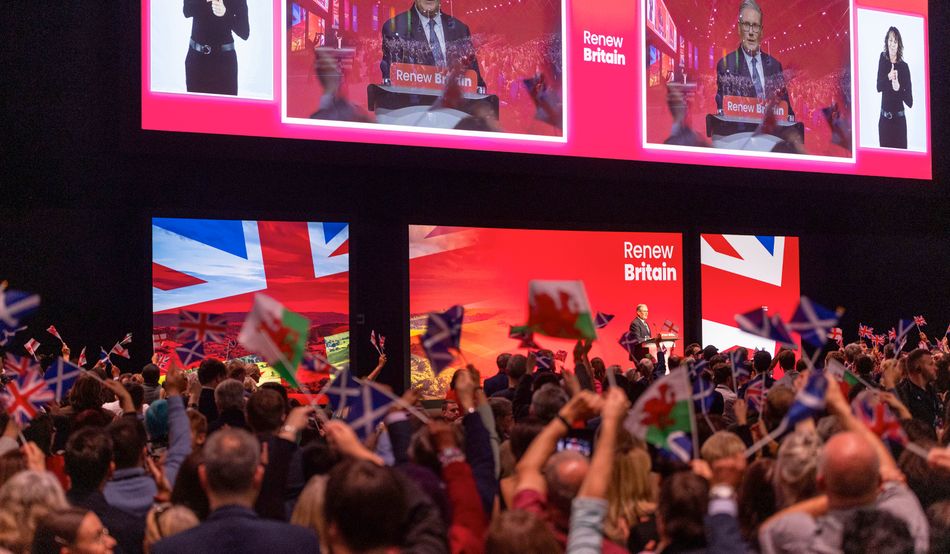Less than 18 months after Keir Starmer and Rachel Reeves swept to power, some whisper that next week’s budget could finish them off. With borrowing high and growth low, the pair might plead that it was always going to be tough. Tax rises are inescapable, as are howls of anguish from those asked to pay more. Further headaches could come from wobbles in the bond market, where investors have been fretting that the big dose of pain we are expecting from Reeves won’t be big enough.
The real problem for Downing Street, however, is not economic. A glance at history shows that governments have survived and occasionally even thrived after meting out more intensive fiscal punishment—think of the 1976 IMF crisis, the great Thatcherite retrenchment of 1981, and the launch of George Osborne’s austerity drive in 2010.
A year into another Labour administration, in 1946, a virtually bankrupt country was frantically negotiating an emergency loan from Washington; an epic financial crisis would hit the following year. In that ration-book nation, families were incomparably more squeezed than Britons are today. Yet the chancellor, Hugh Dalton, vowed in his budget that he would find the money needed to relieve the most squeezed of all “with a song in my heart.” None of this broke the administration, which never lost a byelection and was narrowly re-elected in 1950. As for the prime minister, Clement Attlee remained as Labour leader for nearly another decade.
Attlee was no more charismatic than Starmer. The difference is that the country understood what his government was trying to do, and he had a solid base of supporters who approved of the direction. The few among us who are paid to keep track of public policy might be aware that the Starmer government has rewritten borrowing rules to boost public investment, extended rights for tenants and shift workers and found the funds to keep the health service from collapse. Nobody else is, however. Most people have no sense whatever of where Starmer wishes to take the UK. The one move that most did notice was the unpopular (and now mostly reversed) means-testing of winter fuel payments. A lot of voters also caught the farce in which a “moral case” for cutting disability benefits was rapidly followed by the moral case for a climbdown.
The situation has obviously not been helped by events since last week, including the Starmer operation’s self-detonating briefing against the health secretary, and the chancellor very publicly finding her nerve on income tax, before very publicly losing it again. But jaw-dropping as these blunders are, the mortal danger goes further back.
Keir Starmer’s tragedy is that he is a social democrat who has come to believe that decent social policy is a recipe for democratic defeat. He has subcontracted his political judgements to the uber-factionalist Morgan McSweeney, who sees Labour’s only viable path as picking fights with the party’s natural supporters in the hope of impressing wavering voters. In a leaked pre-election memo, McSweeney attributes the success of his project to date to the fact that “we were able to define a villain: Jeremy Corbyn and the left that corrupted the party.” From London to the northeast, candidates with deep local roots were arbitrarily blocked. Post-election, a bunch of MPs were booted out for voting to abolish the impoverishing two-child benefit limit. This year others were suspended—traditionally a punishment only for misconduct, not mere disagreement—for, in effect, winning an argument with the government over those abortive disability cuts. The briefed reason was “persistent knobheadery”.
Such Westminster nonsense matters because the one reliable generator of political news is not policy, but conflict. Even if the British authorities never snatch rings or other jewellery from the hands of refugees, this week’s noisy row about the possibility that they might do that will lodge in the memory more deeply than Starmer’s vow to his party, just two months ago, to choose decency over division. Many voters who don’t follow the detail have still vaguely picked up that Starmer punches more to the left than the right. And now, from the left, the Greens are breathing down Labour’s neck in some polls.
It is almost painful to think how much less dangerous this budget could have been if Labour hadn’t spent so long pretending not to be a social democratic party. If, for example, Reeves had not so forcefully insisted in 2023 that she would not tax wealth, how much easier would she now find levying new charges on expensive homes and maybe other assets? If Starmer had simply restricted himself to saying that the two-child limit was an issue to look at when resources allowed, rather than provocatively asserting he was “not changing that policy”, might he not now be basking in kudos for edging towards a principled abolition? Instead, he is being charged with offering an expedient sop to an unruly party.
How much more manageable would general tax rises be if Labour had not supported, but simply called out, the palpably unaffordable, last-gasp National Insurance cuts that Jeremy Hunt made just before last year’s election? From Gordon Brown’s 10p tax fiasco in 2007 to George Osborne’s “granny tax” in 2012, budgets can blow up in a chancellor’s face after the event when they dress stealthy changes up in technical language. Such Treasury too-clever-by-half wheezes almost always go wrong. How much less need for them might there now be if only Starmer and Reeves had listened to anyone who knew anything about tax, and avoided manifesto pledges against rises in all four of the government’s main revenue-raisers?
As it was, Starmer, and those around him, took the view that he just couldn’t afford to think about governing until the election was won. Certainly, there would have been endless questions about him raising this or that tax if, instead, he had campaigned full-throatedly for repairing a fraying social fabric, while vowing to contain and fairly share the bill. For my money, a less apologetic Starmer could have matched (at least) the miserable 34 per cent vote share he managed in last year’s election. After all, running with a distinctly unsuitable frontman in Jeremy Corbyn, and not yet blessed by the successive implosion of Boris Johnson and Liz Truss, Labour had notched up a pretty similar score in 2019, and a considerably higher one in 2017.
Admittedly, a clearer “public services first” Starmer pitch may have driven some disillusioned but tax-wary Tories to stick with their tribe. And it may not have drawn concentrated support quite as efficiently in marginal seats as the “we can do this for free” pitch that he did go with. But just imagine that Starmer had been returned with a majority of, say, 80 or 90, with a clear mandate to reset Britain’s course, rather than a majority of 172 underpinned only by a one-word promise: “change.” In that parallel political world, challenging as next week’s budget would be, it could be presented as part of a serious plan. As it is, it will get written up as a desperate, and far from certain, scramble for survival.












